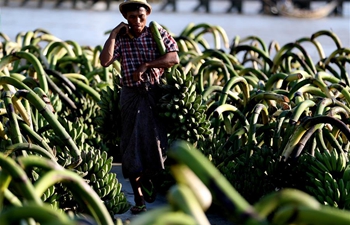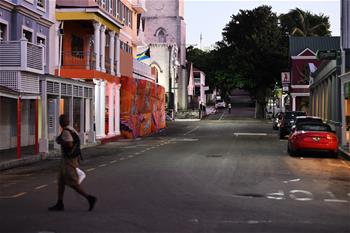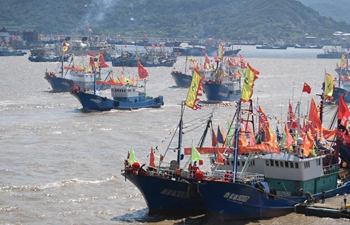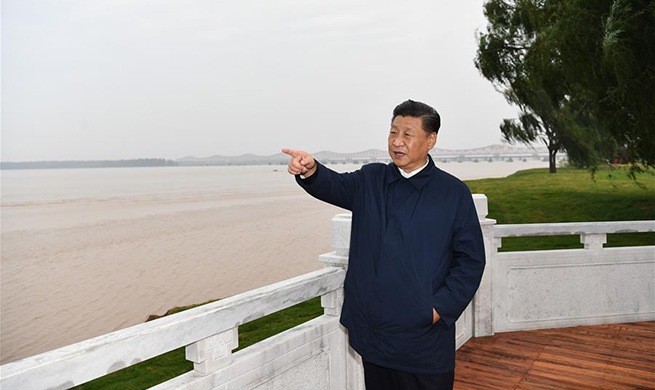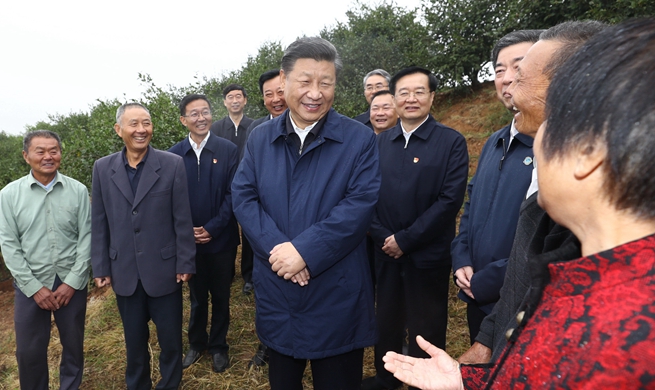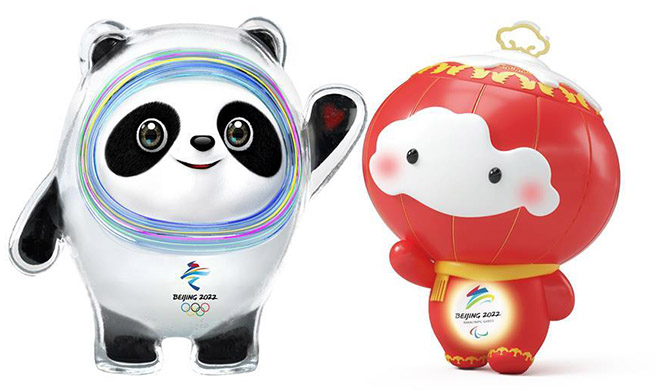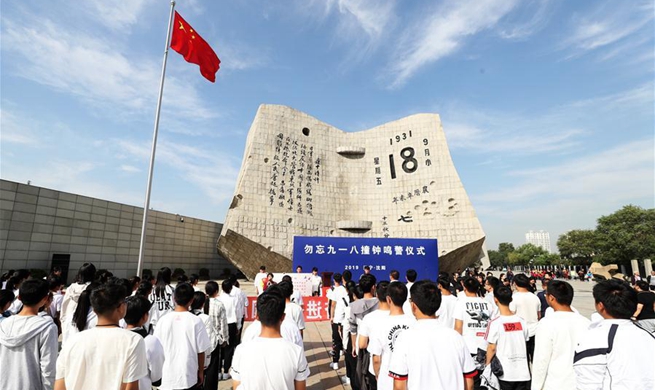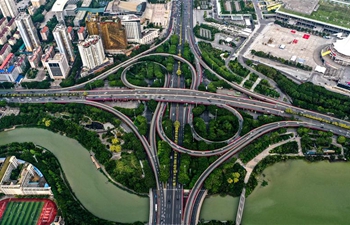TOKYO, Sept. 18 (Xinhua) -- The Japanese government on Wednesday described South Korea removing Japan from its preferential list of trading partners as an "extremely regrettable" move that required more explanation.
According to Japan's top government spokesperson, Tokyo believes it has not received sufficient explanation from Seoul regarding, not just the details of its revocation from the list, but also the thinking behind the move.
"It's extremely regrettable that the review was made. We will continue to urge South Korean authorities to fulfill their accountability to the international community," Chief Cabinet Secretary Yoshihide Suga said of the matter at a press briefing Wednesday.
The move by South Korea on Wednesday, followed a similar step by Japan on Aug. 28, when it removed South Korea from its "white list" of preferential trading partners.
South Korea, the first country to be removed from Japan's list, is no longer entitled to privileged trade procedures that previously allowed Seoul to import goods, including but not limited to electronic components, that could be diverted for military use.
South Korea had been on the list of nations entitled to simplified export control procedures since 2004, which cover a wide range of items, except for food, timber and other goods.
In order to then export the products to countries not on the white list, the countries need to obtain approval from Japan's trade ministry.
The South Korean government had urged Japan not to proceed with its removal from the white list, which it estimated could have a negative bearing on more than 1,000 items in key industries spanning the auto and petrochemical sectors.
But tensions between both countries are continuing to escalate, with bilateral ties between Japan and South Korea sinking to their lowest level in recent years owing to a wartime labor dispute spilling over into a tit-for-tat trade spat.
Japan, prior to removing South Korea from its white list, tightened regulations on its exports to South Korea of three materials vital to making memory chips and display panels, which are mainstays of the South Korean economy, in a prior escalation of souring ties between both parties.
Experts close to the matter have said that the measures could adversely affect both South Korean manufacturers and Japanese exporters as their supply chains are closely interconnected.
Some economists, to this end, have pointed out that due to the interconnectedness of the supply chains, while South Korean chipmakers like Samsung Electronics Co. and SK Hynix Inc. would likely be affected, Japanese exporters could also take a significant hit.
South Korea, for its part, has decided to take Japan off of its own "whitelist" of trusted trade partners and announced tighter restrictions for importing coal ash and some waste recycling materials from Japan.
The South Korean government also announced its decision to scrap the General Security of Military Information Agreement, or GSOMIA with Japan on exchanging classified military information as the tit-for-tat dispute escalates.
Japan said that the decision by South Korea was "disappointing" and that the present security environment had been "completely misread" by South Korea.
Japan said it would continue to ask South Korea to "reconsider" its decision not to extend the GSOMIA.
The GSOMIA pact between both sides, signed in 2016, has enabled the two neighbors to share military information and has helped both sides to counter potential regional threats.
Japanese Prime Minister Shinzo Abe has said that recent moves by South Korea, including the rulings by South Korean top courts last year ordering Japanese firms to pay compensation to forced laborers during Japan's colonial rule of the Korean Peninsula, had damaged trust between the two countries.
South Korea's top court ordering some major Japanese firms to compensate South Korean plaintiffs over forced wartime labor during Japan's 1910-1945 occupation of the Korean Peninsula, with lawyers being allowed to seize the assets of some Japanese firms, initially raised the ire of the Japanese side.
Japan, for its part, has claimed the rulings are not in line with international law and run contrary to the foundation of friendly and cooperative relations between the two neighbors since the 1965 normalization of diplomatic ties.
Japan maintains the matter of compensation for wartime labor was "finally and completely" resolved under the pact.
As for the latest escalation on South Korea's part, Japan's trade minister Isshu Sugawara was quoted as telling local media Wednesday that, "We don't see any problem at all from a security standpoint with our export or import policies. We will look into why South Korea took the step to revoke Japan's preferential status."
